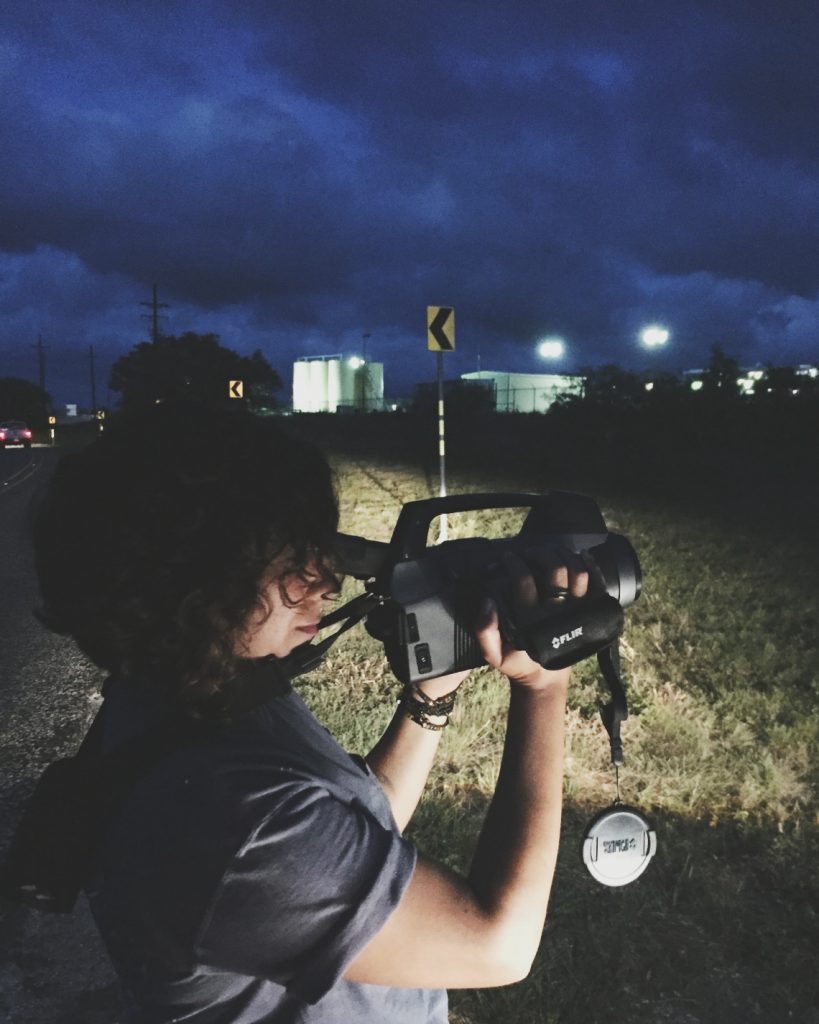
In a recent article written by San Antonio Express-News reporter Jennifer Hiller, she poses the question, Is the Eagle Ford oil boom making people sick?
The question remains, is it making people sick? Some might be tempted to answer this question with a “no”, or a “maybe”, but my time spent with residents like Mr. and Mrs. Lara leaves no doubt in my mind and in the minds of many other Karnes County residents. Families, like the Lara’s, are the first to suffer from the impacts from the industry and struggle to find proof for their ailments. The first time I looked through Earthwork’s FLIR camera I couldn’t believe my eyes. The proof, to me, was right there in that camera lens and the proof for many residents is in the decline of their health.
My first time to the Eagle Ford Shale was in June 2015, shortly after the blowout that affected the Lara’s and many others. My early memories of visiting Karnes County consisted of foul odors, roads overrun by large company trucks, and bright skies littered with drilling rigs and flares. At the time, I was recruiting residents for my research on health risks associated to air quality impacted by the oil and gas activities. It didn’t take long for me to understand, first-hand, what many of the residents were struggling to find the words to describe. Their ailments ranged from scratchy throats, to brain fog, to irregular heartbeats and incessant headaches.
Additionally, as highlighted in the piece by Hiller, impacts are not only on health but also on lifestyle.
“This is who I am right now,” Lara said, his voice rough as the sound of boots on gravel. “It was like they took everything away from me.”
Home for some is a sacred place you turn to for safety; home for the Lara’s has been destroyed and become a place they fear to live in. These have become the costs that many who live near oil and gas facilities face. For me, the answer is an affirmative yes, the Eagle Ford oil and gas boom is making people very sick. The next questions I pose is just how sick is it making them?
About Priscilla Villa
Priscilla Villa is A Texas native from the Rio Grande Valley. She completed her Master's thesis on the health risks faced by residents in the Eagle Ford Shale and is now working full-time as the South Texas Organizer at Earthworks.
I think it is wrong to present this as a question or a personal opinion. It made me sick enough to leave my retirement home of 30 years and relocate all by myself to a canyon with no neighbors in northern New Mexico. If we continue to ask the question, then people will continue to believe there ius a doubt. There is no doubt. Surely yu have data. Say it like it is. Children suffer the most, and old people.
Lynn, I absolutely agree. Women, children, minorities, and the elderly are all at a much higher risk and more vulnerable to exposures. Research has been slow to prove absolute causality but peoples’ stories and experiences in boom towns present enough evidence to me to move beyond this question and, as my coworker suggested, ask what needs to be done about it.
I do not believe research is slow — that’s my point. I think the research is being treated almost exactly as it was with the tobacco thing (only this is worse). We do know what these substances do to human cells, at least, and surely there is a great deal of data about populations and diseases. II as a scientist have known these compounds are toxins for at least 50 years. What has change is not the knowledge. We have more. What has changed is that the information we once used to help people we now are supressing. If this is your work, to write about these problems, I think you need to dig deeper and be less tentative. There is no doubt about it and the corposations know this. Thats why they are supressing it.